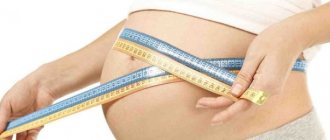Intestinal microflora plays an important role in the development of healthy digestion. The formation of normal microflora in the gastrointestinal tract of a newborn is a complex process. It is greatly influenced by the method of birth (after all, the child, passing through the birth canal, receives maternal microflora), the type of nutrition of the newborn and his environment at an early stage. In children born naturally and receiving mother's milk, this process occurs most harmoniously.
At risk for microflora imbalance are children of mothers who have had various complications during pregnancy and childbirth, premature babies, as well as children who are bottle-fed. Colds and rapid introduction of complementary foods can also lead to imbalances in the intestinal microflora and, as a consequence, the appearance of intestinal disorders, digestive disorders, discomfort, and decreased immunity. Many mothers cannot find an explanation for the baby’s restlessness, nighttime “concerts,” colic and poor appetite, while the answer may be “on the surface.”
Causes of pain
Abdominal pain, i.e. between the chest and groin, can be both a symptom of digestive system disorders and a manifestation of general malaise. In addition, often spasmodic pain in the abdomen turns out to be a manifestation of problems in the emotional sphere of the child: for example, pain occurs after the child is very worried or nervous. If the pain is not very severe and lasts no more than an hour, then there is no particular cause for concern: try to find out what else is bothering the baby, in addition to pain, and take measures to eliminate these ailments. If your child complains of severe pain that does not go away within several hours, be sure to seek medical help. In addition, the following symptoms indicate the need to seek urgent medical attention:
- Increase in temperature: in a baby up to one year old - gradually, in an older child - suddenly and very sharply.
- Changes in stool: appearance of mucus, streaks of blood, change in consistency.
- Dehydration of the body: it can be diagnosed by dry mucous membranes of the lips, mouth, and nose.
Also, dehydration is indicated by a sharp increase in the number of urinations. In the smallest children, the fontanelle sinks, and the eyes can become sunken.
Waiting for the doctor
The first thing to do is to refrain from giving your child painkillers! Until a doctor makes an accurate diagnosis, such self-medication can cause irreparable harm! To really ease your baby's pain, first of all, comfort him, caress him and surround him with attention.
If the malaise is accompanied by frequent bowel movements, in which a lot of salts and liquids leave the body, provide the child with plenty of fluids. However, this does not mean that you should force the patient to drink glasses of water. It is better to offer drinking a tablespoon at an interval of 10 minutes.
Diet for your baby's tummy
An important component of successful treatment is adjusting the baby’s diet. Both during illness and during the recovery period after it, it is necessary not to overload the stomach and include only easily digestible dishes in the baby’s menu.
For little ones, the ideal restorative remedy is, of course, breast milk. A bottle-fed baby should choose a formula with probiotics - excellent helpers for restoring the digestive system.
The diet of older children should include rice and buckwheat porridge cooked in water, vegetable soups and purees, and lean steamed meat. But you should avoid whole milk, white bread, pickles, raw vegetables, sour berries and fruits for several weeks. As a rule, during the recovery period after an illness, especially after the use of antibiotics, the body needs to normalize the intestinal microflora. This can be achieved both as a result of a balanced diet and after taking special medications that help restore beneficial microflora. But in pursuit of quick results, you should not be guided only by the loud statements of the manufacturers of such drugs. Each child is individual, so before introducing “healthy vitamins” into his diet, be sure to consult a doctor and your own common sense.
Why does my newborn's tummy hurt at night?
Girls, hello. I finally decided to write a report about my second birth, while my son is sleeping on my stomach (he prefers it to a crib) and my daughter is sitting on the tablet.
Why did you emphasize the word “natural”? Yes, because during all the time I spent reading stories about childbirth on forums during pregnancy, I very rarely met women who gave birth truly naturally, and not just vaginally. They are not given such an opportunity, even for money, even through connections.
My first pregnancy was a result of IVF, and overall it went well, but there was a lot of fear, hence the unnecessary medications. There is also little information. I regret a lot. That she didn’t look for enough information, that she allowed the doctors to intimidate her and agreed to a caesarean section for dubious reasons. I don’t feel sorry for myself (I went through the operation easily), I feel sorry for my daughter. How much I deprived her of. My husband, how he put up with my postpartum depression for a whole month. But it happened the way it happened, and this birth can probably be called “working on mistakes.”
When I found out about pregnancy (which came naturally, although we were already preparing for another IVF), I immediately thought about childbirth: where and how. At first, the main thing for me was to find a maternity hospital where my baby would not be given formula from a bottle in the first hours of life, but would be put to the breast and allowed to give birth on her own. But as I searched, the list of requirements expanded. Namely, I wanted to give birth without medical interventions, without any injections or vaccinations for the child, so that after the birth they would not do a manual examination of the uterus and would not cut the umbilical cord before it pulsates. Oh yes, and the birth was planned as a partnership. We found such a maternity hospital in Seversk. The perinatal center operates under the “mother and child” program. There, even in the case of a CS, the child is immediately put to the breast and while the mother is leaving, they are laid on the father’s stomach for imprinting. Unfortunately, the maternity hospital is located 800 km from us and I would have to part with my eldest daughter for a month. But somehow on the Internet I came across a note from one doula about a maternity hospital in Chernogorsk, which is located 100 km from us, that all this is practiced there. We decided to go for a consultation with the head physician. After listening to my wishes, he said that I didn’t surprise him with anything and that in their office, the permission of the woman in labor is taken for every manipulation, he looked at my exchange and asked about the first birth. I made a verdict that, of course, I need to give birth myself. He told me to come at 38 weeks for an ultrasound.
My husband and I began attending classes to prepare for childbirth in the same city with the same doula. Mother of seven children, three of whom she gave birth to at home. She takes home births and accompanies women in labor in the hospital. From her we learned a lot about the natural course of childbirth, medical intervention in maternity hospitals and obstetric benefits. Even my husband did not remain indifferent and joined the preparation process). All my fears about a narrow pelvis and a large fetus (estimated at about 4 kg) were dispelled. I set myself up for a painless physiological birth and trusted nature. Of course, I understood with my mind that contractions and childbirth were painful, but in my subconscious I already had the confidence that the process was natural, which means there shouldn’t be hellish pain.
At first we decided that we would take the doula with us to the maternity hospital, but soon a letter was issued that prohibited professional support. In the end, we decided that we would be at home under her supervision until full dilation.
The PDR was on July 8th. We wait. Silence) Only the tummy painlessly turns to stone and periodically exercises. We do husband therapy every day - it doesn’t provoke it, just sweatpants. I was already starting to worry: I was going to be able to walk until I was 42 weeks... I went to the LCD for a CTG, although the doctor said at 40, if I don’t get pregnant, I should come to the hospital for an examination. Naturally, I wasn’t going to go to the hospital, otherwise they would have screwed up my birth during the examination, but if not, then they wouldn’t have let me go already. By the way, my pregnancy was going well, the scar was good, well-defined. At the last ultrasound at 38 weeks, it was 3-4 mm. From 30 weeks I drank primrose oil, raspberry leaves, and from 37 weeks I started doing perineal massage.
My doctor was absent from the LCD (she was loyal to my desire to give birth on my own and never intimidated), she was the head of the gynecology department, an old-school gynecologist at the age. So she looked at my card, raised her eyes at me and began to lament that according to the documents they were already They sent me to the maternity hospital and I have to stay there since 38 weeks. She said that all pregnant women have a progesterone block in their brains and began to call my husband so that he would immediately take me to the maternity hospital and not listen to my nonsense. She began to scream that if I did not listen, then I would have a placental abruption or my uterus would rupture, that they would come home tomorrow check to see if she left (they would have sent a police squad). At first it came over me and I was in tears, but then I pulled myself together, mentally sent her to hell, asked why this should all happen to me, if everything was fine throughout the pregnancy. She wrote refusals for hospitalization and said goodbye. The main thing was that she listened to her heart and reassured me that everything was fine here.
On July 9th, after regular husband therapy, my tummy was tight all evening without pain, I just sat there, timed the time, and at 12 I went to bed. But as soon as the real contraction subsided, a real contraction came, quite painful, I couldn’t lie down, much less sleep. I spent the night staggering around apartment and breathing through the contractions, which were with an interval of 1.5 to 5 minutes, for some reason it was more painful on the fitball. Time nevertheless flew by quickly; oddly enough, the hours flew by like minutes for the entire two days. At 4 in the morning my husband came running, woke up and didn’t see me next to me, jumped up and didn’t sleep anymore - I was worried) At 6 I started calling our doula, I only got through at 9. I wasn’t too worried, I knew that they weren’t real yet, since the interval was jumping .The whole next day the interval was from 6 to 15 minutes, sometimes it died down for about 20 minutes. During the breaks, I simmered, knowing that I would need strength. I was either terribly shivering, then feeling hot and sweating a lot. I ate only peaches and cherries and drank tea nothing else came out of the raspberry leaves. By lunchtime, my husband took my daughter to my mother, and I began to get ready. By the way, my mother constantly tried to make me feel terrible and sent her to the maternity hospital. In general, we arrived in Chernogorsk to the doula at 6 pm, there was no dilation, but the cervix was smoothed and ready for childbirth. Katya said that I would soon give birth. We decided to go home. I spent the next night calmer, the contractions were more tolerable at an interval of 7-12 minutes, I woke up, breathed and rubbed my lower back. I spent the day on a fitball, now it helped Breathing like a train during classes seemed uncomfortable to me, but in fact it greatly relieved the pain. The next day, in the evening, the interval was set at 15 minutes and gradually shortened, the plug began to come off. I realized that this was “it.” By one o'clock in the morning we were back at Katya's with two fingers dilated, the heart was beating well, the child was fine, the bladder was intact. The hours flew by again. My husband was sleeping and I tried, I could no longer lie down during the contraction, and I had to find positions, the pain at its peak became very noticeable. At 5 in the morning I called Katya, 8 fingers opened, I even dripped a little blood and contraction I was already singing on my haunches. We went to the maternity hospital, about 5 minutes away. Katya prepared a postpartum decoction with her that reduces and prevents bleeding. At 6 we were there, full dilation. This is where my husband was very useful to me) He filled out all the papers and later wrote refusals for certain manipulations. They processed us slowly, since we refused to immediately inject the bladder. The doctor freaked out and muttered like “ great, I’ll have time to finish my shift,” then she started asking why I didn’t go to bed at 38 weeks with a scar. We were transferred to the delivery room and connected to a CTG, but with it it was more painful, weak pushing began, but the baby’s heart began to suffer. The heart rate dropped to one hundred when normal 120-160. We agreed to remove the membranes, by that time the shift had changed and the head of the department arrived, she delivered the baby. It’s good that it was not the same doctor who admitted us, she managed to significantly reduce my self-confidence in that hour, thoughts already flashed through the fact that I I can’t cope and I need to ask for a CS. She said that my labor was generally weak and it was time to start oxytocin (at full dilation and with a scar on the uterus)
In general, a wonderful doctor came, removed the membranes, the water turned out to be green (on admission it was already leaking, but it was clean). And then SUCH an effort came over me, which I was unable to cope with and breathe, but I had to! The doctor folded me in half, pressed my knees to my stomach and told me to breathe through my nose, it immediately became easier. The pushing passed and there was such calmness, I just lay there resting for a couple of minutes. By the next pushing I was already positioned on the birthing chair and dressed up. The doctor clearly gave commands and I listened to her, my mind was absolutely clear, I understood that I had difficult work ahead of me. From the first push the head began to erupt, I didn’t feel it. I felt it when it began to come out, there was no pain. The doctor controlled the strength of the pushing, told me when to relax. I gave birth to the shoulders as well as the head, I had to try the same way, since they were an inch larger than the head (the little guy is still no one touched my perineum (my husband asked for it) and I didn’t tear. There were tears in the vaginal mucosa at the exit (I heard a cracking sound when the head came out!). My son was born purple and they didn’t put him on my stomach right away. The umbilical cord They crossed it almost immediately, although my husband insisted. The doctor’s argument was funny - the baby isn’t breathing! (Of course he’s not breathing - he’s on the umbilical cord!) He screamed as soon as they crossed it. Perhaps this is the only thing I’m not satisfied with in our birth, they didn’t give the child received his blood back. And the fact that they did not allow him to give birth vertically, perhaps because of this the skin color was such, the vena cava was compressed. According to Apgar, they gave 8 out of 9, head volume 36 cm, height 55, weight 3920, this is our Levik was born. After an examination by a neonatologist, they put my son on my chest, he rested a little and began to search, kissed and sucked on the tit for an hour and a half while I gave birth to the placenta and they stitched me up. They wanted to give oxytocin, but I refused, I drank a contracting decoction. Just like that, without injections, IVs and a puncture of the bladder went through our birth, everything was as I wanted. We wrote a refusal of vaccinations, putting antibiotics in the eyes, vitamin K and the primary toilet of the newborn.
In conclusion, I can say that the birth was easy, despite two days of contractions, they flew by unnoticed. “The sky in diamonds” I also did not have a chance to see. And once again I will repeat this phrase of women who gave birth after a CS: the main thing is attitude and confidence in your strength!
Getting rid of colic
When a newborn’s tummy hurts, parents are very worried, since the baby’s pain is accompanied by prolonged crying. For colic in a newborn, there is one proven folk remedy - dill water, which can either be ordered at a pharmacy or prepared at home. One tablespoon of dill seeds or fennel should be poured into a glass of boiling water and left until it cools. You need to give your baby 10-20 ml of strained infusion every 2 hours.
You can help your child in other ways. The most effective of them are:
- Tummy massage. Place your baby on his back and use your palm to massage his belly in a clockwise direction. Do not press, otherwise it may hurt the baby even more. Thus, you will help the baby get rid of gas.
- Holding in a column. Excess gases and air can be released through burping when the baby is upright with his tummy pressed against your chest.
- Warming up. Place a warm diaper or heating pad on your baby's tummy. You can use the method mentioned above - lightly press the baby’s tummy to your body and carry him in your arms until he calms down.
- Charger. One simple exercise helps a lot with gas. Place the child on his back and sit at his feet. Take the baby by the ankles and lightly press each leg to the tummy, one at a time. This exercise is called "cycling".
- Placing the baby on his stomach. Do this before each feeding, but not at times when the baby has severe tummy pain.
- Gas outlet pipe. Before you use it, you need to learn how to do it from your pediatrician or nurse. The tube can damage the intestines, so it must be handled very carefully. This method of getting rid of gas is used only in extreme cases and only with the permission of a doctor.
How to help your baby?
If a newborn’s stomach hurts day after day, it is first necessary to identify the exact cause of this condition. No matter how experienced a parent you are, you should consult your pediatrician. To clarify the diagnosis, you need to take tests and conduct an examination, linking indirect symptoms. In some cases, an ultrasound examination may be necessary.
What to do to help the baby and ease his suffering? Much, of course, depends on the diagnosis. In case of serious disorders and detection of diseases, medical intervention cannot be avoided. You may need to stay in a hospital. The course of treatment is prescribed by the doctor, and parents can only strictly follow all the specialist’s recommendations. In more severe cases, even surgery may be necessary. That is why in no case should one hope that the problem with abdominal pain in a child will be solved by itself or will be eliminated through the use of exclusively folk remedies.
A light tummy massage is good for colic in babies. This will help relieve gas and distract your baby.
If your baby is experiencing colic, there are many ways to relieve gas and cramps.
Massage
Stroking and light pressure are not only pleasant for the baby and distract him from painful sensations, but also calm him and stimulate the natural elimination of gas accumulations in the intestines.
Column
After feeding, it is recommended to place the baby upright so that he can burp the excess air that has entered the stomach. Wear it in this position more often and you can significantly reduce the risk of colic.
Dill water
The pharmacy sells teas and infusions with fennel, but you can prepare such a decoction at home. As an alternative, you can use regular garden dill seeds. You need to give water after feeding. The substances contained in these plants help improve digestion and prevent the accumulation of gases. It is also good to use chamomile decoction to alleviate the situation. You can choose special herbal teas that are suitable in composition and action for a specific age and situation.
Control of the feeding process
A very common problem is the baby swallowing air during feeding. If you are breastfeeding your baby, make sure that he has a good grasp of the nipple with his lips. For “artificial” babies, you can purchase special drinking bowls and nipples. Their structure is designed taking into account options for solving this problem.
Pharmacy medications will also help in the fight against colic in babies. They are given in drops and syrup
Nutrition selection
Some products can stimulate fermentation processes and increase gas formation. First of all, you need to stick to your diet while breastfeeding. Also pay attention to the selection of mixture and complementary foods. Use special supplements and teas with fennel and beneficial bacteria to promote normal digestion.
Gas outlet tube
In order to quickly get rid of air accumulated in the intestines, you can use a pharmaceutical device in the form of a tube. It is inserted into the baby's anus. When pressure is applied to the tummy, the gases begin to come out, and the problem is solved very quickly.
Medicines
In some cases, it becomes very difficult to cope with colic without medication. Then you can take special children’s medications to help, for example, “Espumizan”, “Bobotik”, “Colikid”, etc. The substances in their composition help to break down large accumulations of gases, which reduces pressure on the abdominal wall and promotes their natural discharge. However, before use, you need to consult a pediatrician, because such measures are not always acceptable. In addition, you need to choose exactly the medicine that will be best accepted by the child’s body itself.
In case of dysbacteriosis, it is important to provide the child with proper nutrition and stimulate the normalization of the microflora. To do this, the intestines are populated with beneficial bacteria obtained from food with supplements (probiotics and prebiotics). Pathogenic microorganisms are suppressed with the help of drugs, if necessary. To strengthen the immune system, it is important to ensure the body has a sufficient amount of vitamins.
If you follow all these recommendations, the problem with abdominal pain will be solved as quickly as possible. Don’t ignore it, because if you take appropriate measures it will be easier for both you and your baby.










